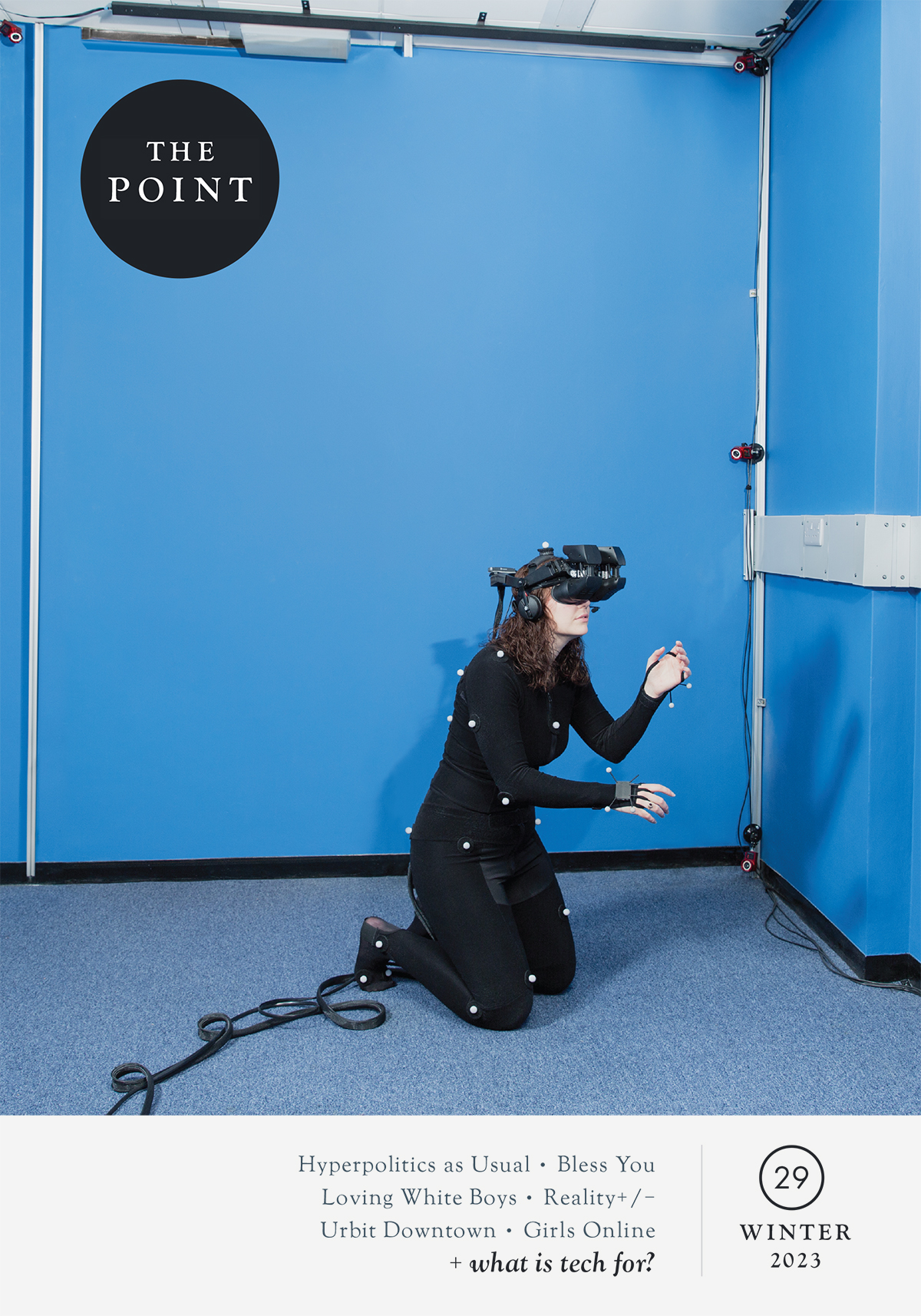We must instead learn how to play a different game: the game of mutual humanization. But how do we know when we are playing that game?
If hyperpolitics offers some tentative clues for analyzing the post-2008 epoch in the West, the concept can only be fully grasped as part of a broader chronology of the political forms—from mass politics to post-politics—that ran across the twentieth and 21st centuries.
How thrilling, to be granted a character that is explicitly an Asian American woman! But alas, as I discovered, the paranoid script is not a very good one.
I had so often heard of how healthy it was to make a practice of “gratitude”—I assumed it would be like that.
This fall, we decided to embark on a collaborative writing experiment loosely inspired by the practice of pair programming.
Maybe we really are in the Matrix? Maybe this is a test. At the edge of what can be emotionally or mentally accommodated, the simulation hypothesis seems less like a joke and more like a symptom, or the expression of a feeling that something important has become unhinged.
What is it like to work in tech every day? This winter we surveyed people who work in tech about their jobs, common misconceptions about their industry and what they think it is for.
There’s no need for good judgment, responsible governance, self-sacrifice or mutual care if there’s an easy technological fix to ostensibly solve the problem.
For now, The Network State is an exemplary salvo in a debate playing out in tech today over which type of world we want to live in: A world of Atoms, or of Bits?
What would it be to approach the question “Can machines think?” in a different way?
“You ban the poets? You want to be like Sparta? Those are big issues.”
What is it like to work in tech every day? This winter we surveyed people who work in tech about their jobs, common misconceptions about their industry and what they think it is for.
If you wanted to know what was really going on, you had to get on Urbit.
A biographical critic and an autobiographical novelist, Hardwick nonetheless relished intricate mismatches between the life as experienced and the life as written.
Even as girls purportedly lose on the internet, a girlish mode of expression and Goffmanian self-presentation have won out among swelling ranks of users—including many who are not themselves girls.
